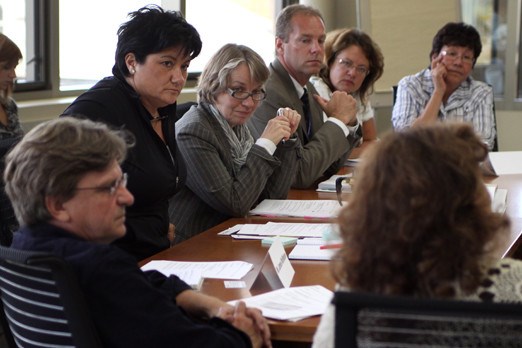Members of the city’s crime prevention council say the federal government’s proposed omnibus crime bill will have a negative impact on the community’s most vulnerable.
The bill would introduce controversial measures, like mandatory minimum sentences for drug possession. Those kinds of initiatives victimize the poor, people with mental illness and the Aboriginal population, said Thunder Bay Drug Strategy coordinator Patti Hadju.
"It has the potential to increase the amount of people involved in the criminal justice system dramatically," she said.
Once people are in the justice system, it can lead to everything from poor health to becoming victims of crime themselves, Hadju said at a crime prevention council meeting Wednesday afternoon.
Council chair Wendy Landry said the bill would introduce legislation that is the exact opposite of initiatives the crime prevention council is looking into.
"I can’t believe that this is happening," Landry said.
But because of the scope of the bill, some members, including Coun. Rebecca Johnson, said it would be best if individuals on the prevention council and their organizations talk to the federal government rather than the council itself.
"I think that’s all we can do at this point," Johnson said.
Tom Walters, of the Children’s Centre Foundation Thunder Bay, agreed.
While he agrees that parts of the bill are contrary to the prevention council’s goals, the council is supposed to function as an advisory group to city council rather than its own advocacy group.
“I don’t know if we can respond as a council," Walters said.
But Hadju said there are local responses that could lessen the impact of the legislation on Thunder Bay.
Police could develop a community response to certain drug use and even schools could develop policies so that children caught passing a joint near their schools aren’t criminalized.
"Those responses might just be a drop in the bucket," Hadju added.
Community groups could also educate citizens on their rights when faced with things like search and seizure, Hadju said.
The Thunder Bay Drug Strategy is even bringing in retired judge Marvin Horten on Oct.13 who speaks about the relationship between poverty and crime and how drug prohibition leads to more incarceration with negative impacts on the individual.
The prevention council also developed a seven to nine person work group within the council itself to start working on ways to implement its crime prevention strategy, which was approved by city council Monday.
The crime prevention council meets again Nov. 23.
